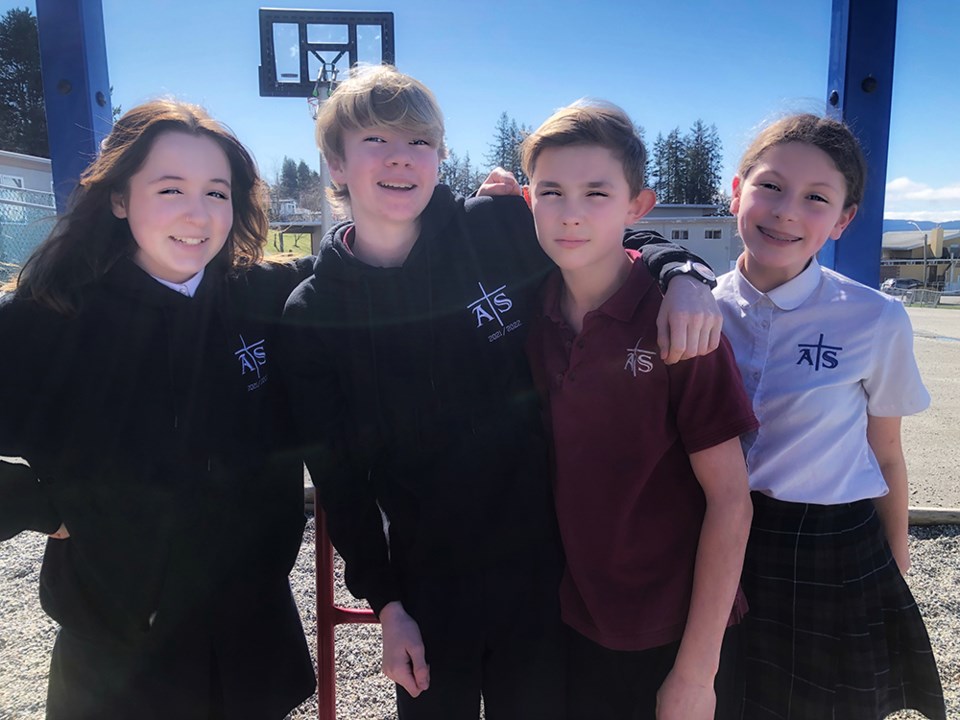Four Assumption School students will be participating in the Greater Vancouver Regional Science Fair in April.
According to acting principal Angela Bennett, students in grades five to eight participated in science fair projects at Assumption this year.
“Students worked to explore a topic of their choosing,” said Bennett. “This is a great way for students to grow their organizational skills, improve their public speaking and develop their ability to analyze data.”
Projects were presented at the school level at the end of February. Bennett said the four students will be competing virtually at the science fair in April. Their projects were chosen due to student passion and their academic excellence, added Bennett.
Grade seven student Alivia Massullo undertook a project called bacteria breakout.
According to Bennett, Alivia swabbed several high-touch surfaces around the school that are likely to be cleaned less often and cultured bacteria on nutrient agar petri dishes. Her experiment showed that the area of lowest bacterial growth was toilet seats, while iPads need to be cleaned more frequently.
Lydia Parsons, grade eight, did a project in assessing anxiety in youth.
Using a survey provided by VK Wellness to guide her work, Lydia surveyed peers on a variety of aspects about anxiety, according to Bennett. Intellectual, emotional and physical wellness proved to be the areas of highest concern in the adolescents surveyed. Lydia said she wants to help teens take care of their well-being so they can develop the skills needed to be successful later in life.
Eric Ruegg, grade eight, performed a raycasting experiment.
Inspired by his love of computer programming, Eric set out to create a raycasting algorithm that works more efficiently. Simplistically, this is the feature of 2D images that makes them appear 3D, according to Bennett. Eric’s new algorithm ran approximately 40 per cent faster. He hopes this can be applied to use in development of realistic 3D video games.
Grade eight student Emil Valing tried to find the best firewood.
Emil was curious which firewood was truly the best in terms of affordability, longest burn time, and hottest burn, said Bennett. He cut pieces to the same size and used an infrared thermometer to record temperatures. Out of the five types of wood tested, he found Douglas fir burned the longest and alder burned the hottest.

.jpg;w=120;h=80;mode=crop)

